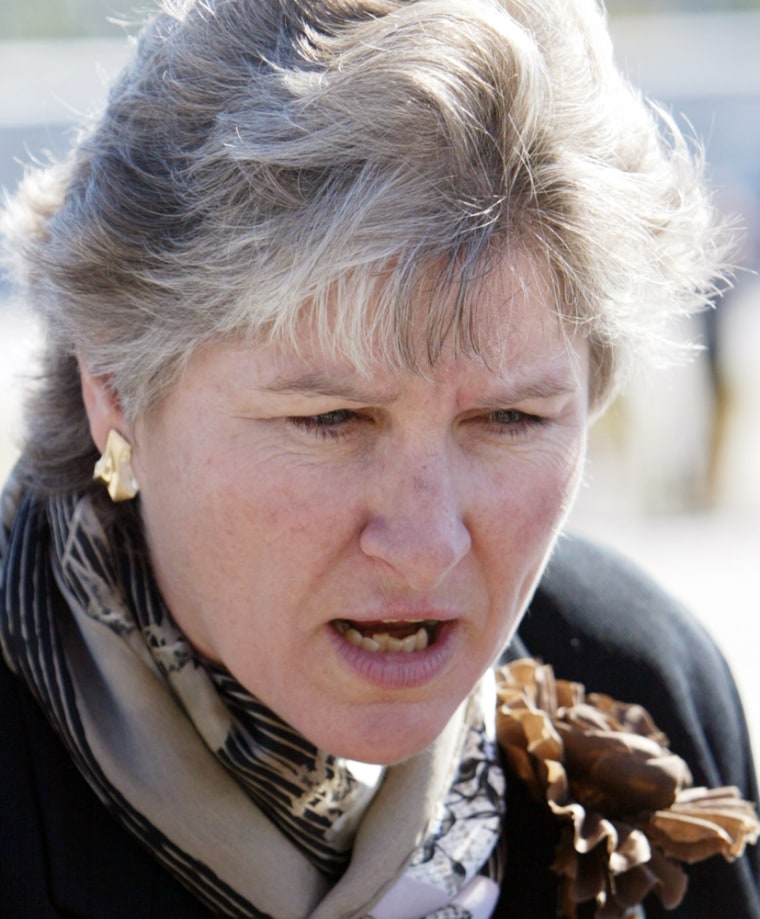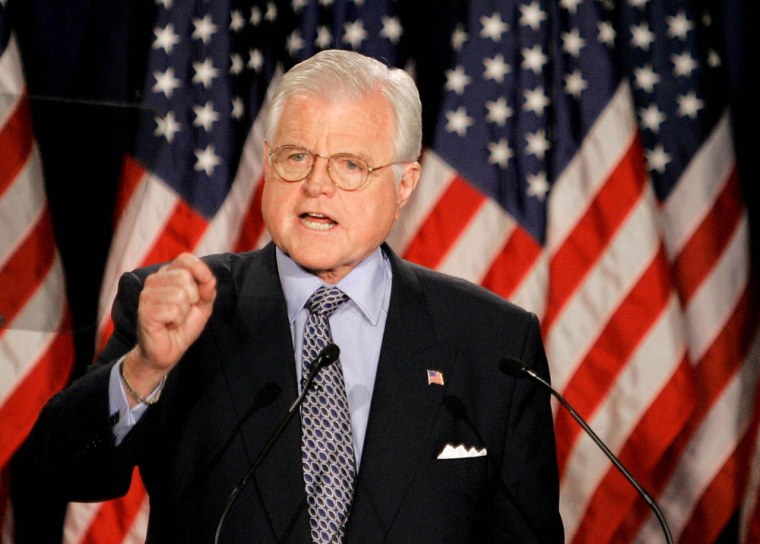The battle for the U.S. presidency can be seen as a prize fight gone wild — one with campaign stand-ins jumping into the ring to throw punches.
To be sure, voters will decide the Nov. 2 election by sizing up the two heavyweight contenders: Republican President George W. Bush and Democratic challenger John Kerry.
Yet their surrogates — an assortment of running mates, aides, party bosses, family and friends, U.S. lawmakers, governors, survivors of the Sept. 11, 2001, attacks — are all part of the brawl.
"The only thing America has to fear is four more years of George Bush," Sen. Edward Kennedy, a Massachusetts Democrat and top Kerry surrogate, roars on the floor of his chamber.

On Fox TV, Bush adviser Karen Hughes counters: "You have seen in Senator Kerry ... a dangerous pattern of, you know, sending mixed signals that I think undermine our effort in the war against terror."
Surrogates routinely square off on television, particularly talk shows. They defend their man and attack the other, hitting on such fronts as the Iraq war, health care and the economy.
In recent days, another chief topic has been the first presidential debate, which Kerry was widely seen as winning over an apparently edgy Bush.
"George Bush is the president of the United States ... and he has trouble putting a sentence together," Democratic Party Chairman Terry McAuliffe told CNN.
"Senator Kerry was very polished," said Republican Party Chairman Ed Gillespie, also appearing on CNN. But, Gillespie said, "the election is not about who is the more flowery orator .... The election is about who's right on the policies."
Surrogates help attract attention
Larry Sabato of University of Virginia's Center for Politics said despite all the clamor, surrogates historically have had little impact on Election Day.
"What do surrogates do? They attract attention, which means the news media," Sabato said. "They can help raise money if they are famous."
"Occasionally, if surrogates have political power, they can deliver some votes," Sabato said. "But by and large, they don't sway votes."
The vice presidential candidate has traditionally been the top surrogate, the one who often serves as chief "attack dog."
Vice President Dick Cheney and his Democratic rival Sen. John Edwards had their own debate this week even though very few voters make their pick for the White House based on the No. 2 on the ticket.
Bush likes to introduce his wife Laura to campaign crowds by saying he married above himself. The line is not a total joke. Polls find the first lady with far higher favorable ratings than his, making her a popular surrogate who focuses on the positive.
Another top member of the undercard is Kerry's wife, Teresa Heinz Kerry, whose blunt talk has drawn a legion of loyal backers as well as some harsh critics.
Other surrogates include Kerry's former combat buddies in Vietnam who attest to his bravery, and members of Bush's administration who tout his White House record.
Sen. John McCain, an Arizona Republican, backs Bush. But he has also defended Kerry, a fellow Vietnam War veteran. McCain, who made a failed bid for the 2000 Republican presidential nomination, shrugged when asked the value of surrogates.
"I don't know," McCain said, other than perhaps providing candidates with something of "a security blanket."
"If you have a group of men and women who support you, it makes you feel good," said McCain.
